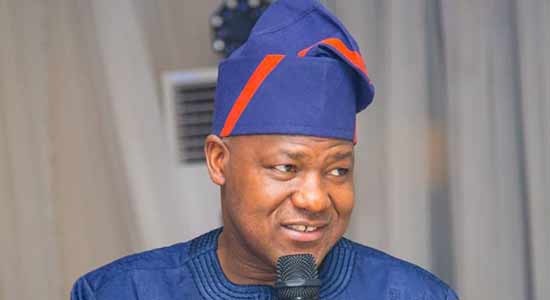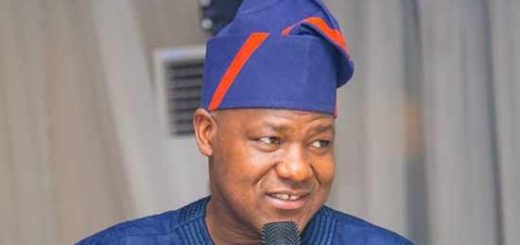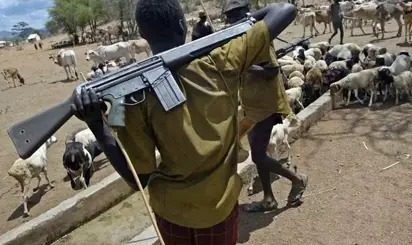Dogara: Nigeria’s Security Crisis, Including Boko Haram, a Result of Poor Governance
 Yakubu Dogara, former Speaker of the House of Representatives, has declared that the Boko Haram insurgency and other security issues plaguing Nigeria are products of bad governance. Dogara made the remarks on Wednesday during the 2025 World Interfaith Harmony Week conference and awards in Ibadan, where he delivered the keynote address. The theme of the event was “The love of the Good, and the love of the neighbors.”
Yakubu Dogara, former Speaker of the House of Representatives, has declared that the Boko Haram insurgency and other security issues plaguing Nigeria are products of bad governance. Dogara made the remarks on Wednesday during the 2025 World Interfaith Harmony Week conference and awards in Ibadan, where he delivered the keynote address. The theme of the event was “The love of the Good, and the love of the neighbors.”
The event saw the attendance of notable figures, including former President Olusegun Obasanjo, former Ogun State Governor Senator Gbenga Daniel, Sultan of Sokoto, Alhaji Muhammad Sa’ad Abubakar, and the Presidents of the Christian Association of Nigeria (CAN) and Muslim Ummah of South West Nigeria (MUSWEN), among others.
Represented by Timothy Golu, Dogara emphasized that Nigeria has faced numerous crises since independence, with the civil war of 1966 to 1970 being the most catastrophic. However, he lamented that Nigeria has not learned much from the aftermath of that war.
Dogara pointed out that the Boko Haram insurgency, which began in Borno State in 2009, has evolved into one of the most dangerous international terrorist organizations, causing the deaths of thousands and the displacement of over five million people.
He noted that Nigeria ranks high on global conflict charts, with the country facing challenges like Boko Haram, mass kidnappings, banditry, armed robbery, and religious and ethnic clashes. He also highlighted the ongoing farmer-herder conflicts, which have displaced thousands, damaged local economies, and worsened ethnic and religious tensions.
Dogara criticized successive administrations since 1999 for their ineffective responses to these crises, stressing that Nigeria is now at a moment of national peril. He called for leadership to take responsibility for addressing the violence and instability, stating, “If our democracy must deliver on its promises, we must deploy our collective will and energy to root out violence.”
He concluded by stating that the future of peace, development, and progress in Nigeria depends on accepting the responsibility to actively create it, emphasizing that leadership is the key to overcoming the nation’s challenges.













